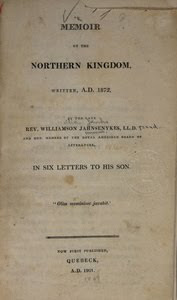Watch for tweets from me and others throughout the conference; we'll be using the #sea11 hashtag.
The Transatlantic Literary Marketplace:
Thursday, 3 March
Session One (8:45-10:15)
Preserving History in the New Nation:
Chair: Charlene Mires, Rutgers-Camden & Director of MARCH (Mid-Atlantic Regional Center for the Humanities)
- "Patriots and Antiquarians: Preserving the Revolution in the Early Republic," Alea Henle (University of Connecticut)
- "Patriots in the Attic: Heritage and Virtue after the Revolutionary Moment," Simon Gilhooley (Cornell University)
- "An Ancient Landscape for a New Nation: Sites, Cities, Collections," Whitney Martinko (University of Virginia)
Session Two (8:45-10:15)
Early American Sentimentalism and Religion:
Chair: Wendy Roberts (Northwestern University)
- "The Emotions of Anti-Revivalism in James Walcot's The New Pilgrim's Progress, or, the Pious Indian Convert," Laura Stevens (University of Tulsa)
- "On Mediocrity: Sentimental Modes and Pious Versifiers," Meredith Neuman (Clark University)
- "Tears Elect: Religious Influences in William Hill Brown's The Power of Sympathy, Abram Van Engen (Trinity University)
- "Sentiment, Religion, and the Concept of Religious Enthusiasm in Harriet Beecher Stowe's Historical Novels," Lawrence Zellner (SUNY Stony Brook)
Spectacular Rebellions and Secret Histories: The Haitian Revolution's Literary and Cultural Impact:
Chair: Thomas W. Krise (University of the Pacific)
- "The Price of Revolution: Toussaint Louverture's Buried Treasure and the Secret Evaluation of Haitian History," Christen Mucher (University of Pennsylvania)
- "Interrogating Toussaint in a Trans-Atlantic Context: Fabienne Pasquet's La deuxième mort de Toussaint Louverture," Mariana Past (Dickinson College)
- "Dancing on the Volcano: The Haitian Revolution and Intercultural Performance," Peter P. Reed (University of Mississippi)
- "Sophia Peabody's Cuba Journal: Uncovering Secret Histories of the Circumatlantic and the U.S.," Rita Williams (University of Delaware)
What's Coming - Digital Databases, Editing, and Publication:
Chair: Philip Barnard (University of Kansas)
- “The Digital Humanities and Early Americas Digital Archive: Recent Developments and Directions,” Ralph Bauer (University of Maryland, College Park)
- “Bridging Media and Editorial Approaches: Digitizing the Bicentennial Edition of Charles Brockden Brown’s Novels,” Raymond Craig (Kent State University)
- “Scholarship in the Digital Age: Digital Publication Models and Trends,” Mark Kamrath (University of Central Florida)
Session Four (3:00-4:30)
Collaborative Networks in Early America:
Collaborative Networks in Early America:
Chair: Sean X. Goudie (Pennsylvania State University)
- “The Severed Hand of the Law: Crime and Newspaper Literature in the Eighteenth-Century Anglo-Atlantic,” Gabriel Cervantes (Vanderbilt University)
- “Collaboration & Information Networks in Three Eighteenth-Century Gazettes,” Joseph Chaves (University of Northern Colorado)
- “Map Quests of the American Atlantic World: Networks, Enclaves, and the Invention of The American Atlas,” Martin Brückner (University of Delaware)
- “Imperial Networking: The American Philosophical Society and the Long Expedition, 1819-21,” Robert Gunn (University of Texas at El Paso)
Early American Libraries Roundtable:
- “Never a Library Fine: John Jay and the New York Society Library,” Jennifer Steenshorne (The Papers of John Jay, Columbia University)
- “Common Knowledge: An Overlap Study of Library Company Catalogs from the 1790s,” Cheryl Knott Malone (University of Arizona)
- “Cotton Mather’s Forgotten Library: Publishing the first American Bible Commentary Then and Now,” Reiner Smolinski, (Georgia State University)
- “Early Impressions: A First Look at Bermudian Book History,” Jeremy B. Dibbell (LibraryThing)
- “Reconstructing the 1829 Auction Sale of Thomas Jefferson’s Final Library,” Endrina Tay, (Thomas Jefferson Foundation-Monticello)
- “An American Reader in London: Rufus King and the Use of Books in Diplomacy,” David J. Gary (CUNY-Graduate Center)
Offensive Women: Female Transgression in the Print Culture of Early America:
Chair: Richard Frohock (Oklahoma State University)- “The Transgressions of Ann Carson, the Most Offensive Woman in the Early Republic,” a joint presentation by Susan Branson (Syracuse University); Larisa Asaeli (Texas Christian University); and Dan Williams (Texas Christian University)
- “Witchcraft, Power, and Death: Dangerous Women in Northern Mexico in the Late Colonial Period,” Yolopattli Hernandez-Torres (Lycoming College)
- “The Ever-Curious Public: Charlotte Temple and the American Criminal Narrative,” Tim O’Neil (Oklahoma State University)
- “A Most Rigid Censor of Female Conduct: Politics, Ideology, and American Womanhood in Sansay’s The Secret History,” Alison Tracy Hale (University of Puget Sound)
Friday, 5 March
Session Six (10:30-12:00)
The Transatlantic Literary Marketplace:
Chair: Christopher Apap, Oakland University
What is the Future of the History of Books?
- “John Neal’s Paratexts: Selling the Book to the American Reader,” Joshua Ratner(University of Pennsylvania)
- “Irving’s Geo-Political Sketch Book,” Lydia Fash (Brandeis University)
- “Paulding’s Humorous Response to English Critiques of America,” Maura Jortner (Baylor University)
- “The History of American Literary Hoaxes,” Tracy Hoffman (Baylor University)
Saturday, 5 March
Session Twelve (3:00-4:30)
What is the Future of the History of Books?
Chair & Respondent: Paul Erickson, American Antiquarian Society
- “Anachronisms: Winthrop, Savage, Hawthorne,” Patricia Roylance (Syracuse University)
- “Is There Paper in our Future? Material Textuality and Early Print Nationalism,” Jonathan Senchyne (Cornell University)
- “Can We Have Sex in the Archives?,” Jordan Alexander Stein (University of Colorado at Boulder)
See the conference website for full details on the meeting.
